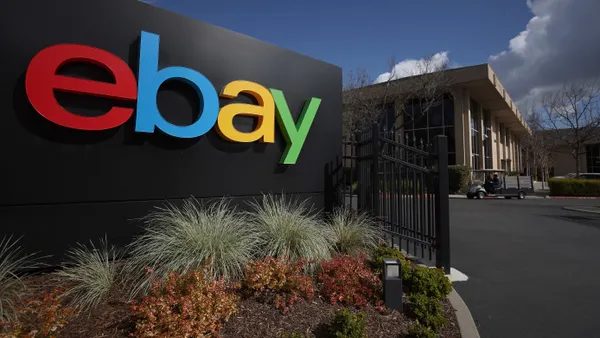Dive Brief:
- As competition heats up in the smart speaker category, Amazon is getting into the artificial intelligence chip business and plans to make a chip that will enable Alexa-powered Echo devices to respond more quickly to commands, a person familiar with Amazon's plans told The Information.
- The speed will be gained by allowing more of the devices’ data processing to be handled within the device rather than in the cloud, according to the report.
- The e-commerce company follows Google and Apple in moving to design their own AI chips. The goal of all three companies is to differentiate their products from the competition.
Dive Insight:
Alexa may be headed for brain surgery. While this would seem, at first blush, to be a user benefit, TechCrunch reported that the commercial advantage of the added speed is really what Amazon is after. In using Alexa as a selling tool, providing consumers with information quickly is the key to closing deals. For this, response time needs to be as close to zero as possible.
Alexa now must interact with the cloud to interpret commands, resulting in a short delay, according to Ars Technica. AI chips in the Echo devices would allow Alexa to process some requests faster. These are likely to be simpler requests, with complex queries still handled with help from the cloud.
It is not known when Amazon will start work on the AI chips, but it has staffed up with an estimated 450 people who have chip expertise. Many arrived through recent acquisitions, like Israeli chipmaker Annapurna Labs in 2015 and security camera company Blink in 2017. Blink has expertise in low-energy chips that are now used to extend the battery life in smart home security cameras.
The physical production of the chips is unlikely to interest Amazon, which has neither fabrication experience nor a manufacturing presence in China, according to The Verge. The news, however, might challenge the businesses of companies like Nvidia and Intel. Both have shifted large portions of their chip-making expertise to AI, while designing and manufacturing chips for companies like Apple and Amazon.
Apple and Google are already working on AI chips. Apple has begun developing chips for the iPhone, such as the graphics processor and power management unit, and cut off long-time suppliers. Google has AI chip development experience going back many years, but only recently shifted some of this knowledge into the consumer area. It has begun developing AI chips for its Clips camera, as well as designing the image processor in the Pixel 2 mobile phone.
AI is a hot topic in retail, and not just with the big technology firms. SLI Systems reported that 54% of retailers surveyed already use or plan to add AI technology in the future, and 20% said they plan to add AI within the year. About 13% of those planning to implement plan to build their own tech, with 60% expecting to buy existing tech and 27% expecting to blend "build and buy."










